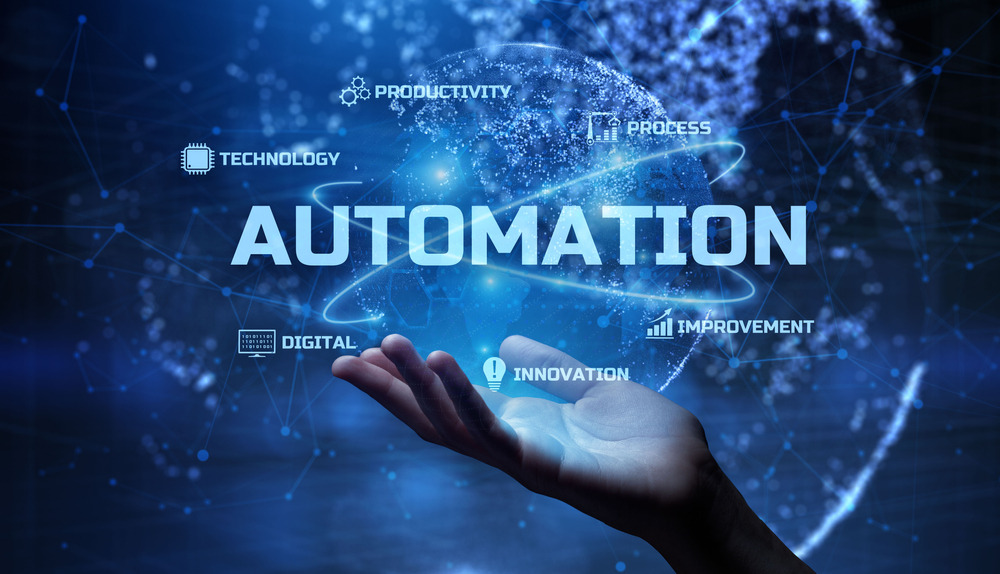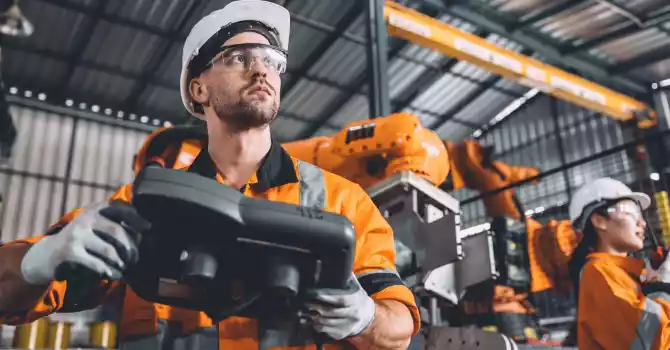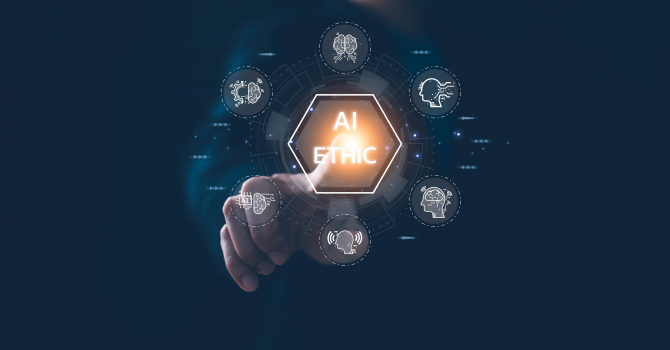The adoption of artificial intelligence (AI) promises to revolutionize business operations and models in the coming years. As AI and automation become more sophisticated and widespread, they will transform how companies function at their core. Mundane and repetitive tasks will be automated away, freeing up human workers to focus on more strategic initiatives that require creativity and critical thinking. With the ability to gain insights from massive amounts of data, AI can enable hyper-customized and personalized customer experiences, leading to innovative new business models. The competitive environment is evolving rapidly as AI adoption reshapes operations across all industries. Companies that fail to implement AI technologies run the risk of falling behind. Business leaders need to re-envision every process, product and service to harness AI’s expanding capabilities. The future presents huge opportunities for organizations that successfully transform their operations using AI. This profound shift requires new strategies to unlock AI’s tremendous potential for business growth and value creation. With the right approach, companies can revolutionize their business through effective human-machine collaboration.
Automating Mundane Tasks
Organizations spend a significant amount of employee time on repetitive, mundane tasks that could be automated. Studies show that employees spend up to 40% of their time on low-value administrative tasks that offer little personal fulfilment. By leveraging AI and automation, businesses can eliminate these routine activities and free up human workers to focus on more rewarding and strategic initiatives.
Automation is already widely used in manufacturing, where robots can repeat rote factory jobs with greater speed and accuracy than humans. Now AI promises to bring similar productivity improvements to knowledge work by handling routine paperwork, data entry, scheduling, reporting, and other tedious workflows. 94% of companies perform repetitive tasks that could benefit from intelligent automation. This enables employees to dedicate more time to creative problem solving, building relationships, and other high-value responsibilities only humans can fulfil.
Workers stand to gain back hours of their day previously filled with drudgery. Rather than getting bogged down running reports or processing forms, they can take part in strategic planning and impactful projects. Automation lifts the burden of repetitive work and liberates human potential within organizations. AI promises greater job satisfaction as technology handles the tasks people dislike, while augmenting human skills to maximize strengths.
Enabling Hyper-Customization
AI and machine learning allow companies to build detailed profiles of each customer and then tailor products, services, and communications to their individual needs, values and preferences. This hyper-personalization creates a customized experience for each client. Whereas segmentation divides customers into groups based on shared attributes, hyper-personalization treats each customer as an individual. The AI analyses data in real-time to understand the customer’s context and intent, and then generates personalized content and recommendations tailored specifically for that user. Companies can rapidly test variations of products and messaging to determine the optimal combination for each client. With hyper-personalization, businesses can build deeper customer relationships and boost engagement and loyalty.
Implementing AI is Critical
Businesses that fail to adopt AI risk extinction according to recent surveys. A report by Yale found that 42% of CEOs believe AI could destroy humanity. With the competitive environment evolving rapidly, AI-powered rivals will conquer markets with better operations. As AI leaders warn, AI poses a risk of extinction. Every day, AI is becoming more sophisticated and powerful. Leaders must act now to implement AI or risk their business becoming obsolete. The time to harness AI’s potential is now, before the competition does. Businesses that fail to adopt AI will simply be unable to compete with rivals leveraging AI’s capabilities. The future belongs to those who successfully integrate AI into their operations and strategy.
Preparing for an AI-Powered Future
The rise of AI presents both opportunities and challenges for business leaders. To fully capitalize on AI’s potential, companies must develop a forward-thinking strategy and be willing to reimagine their operations. As McKinsey notes, “Generative AI has the potential to change the future of work in America. We look at which jobs will be in demand and which ones may be at risk”.
Leaders must evaluate every process, product, and service through the lens of AI capabilities. The technology is advancing rapidly, so the time to implement is now. The IMF similarly warns that “Artificial Intelligence (AI) has the potential to reshape the global economy, especially in the realm of labour markets” (source). Businesses that fail to adopt an AI strategy risk falling behind the competition.
However, the future is bright for companies that harness the power of human-machine collaboration. As Forbes notes, “Employees will be not replaced but augmented by AI”. When implemented thoughtfully, AI does not replace human capabilities, but rather enhances them. The key is developing a human-centric strategy that amplifies strengths of both people and technology. With the right approach, businesses can unlock tremendous growth and creativity.



